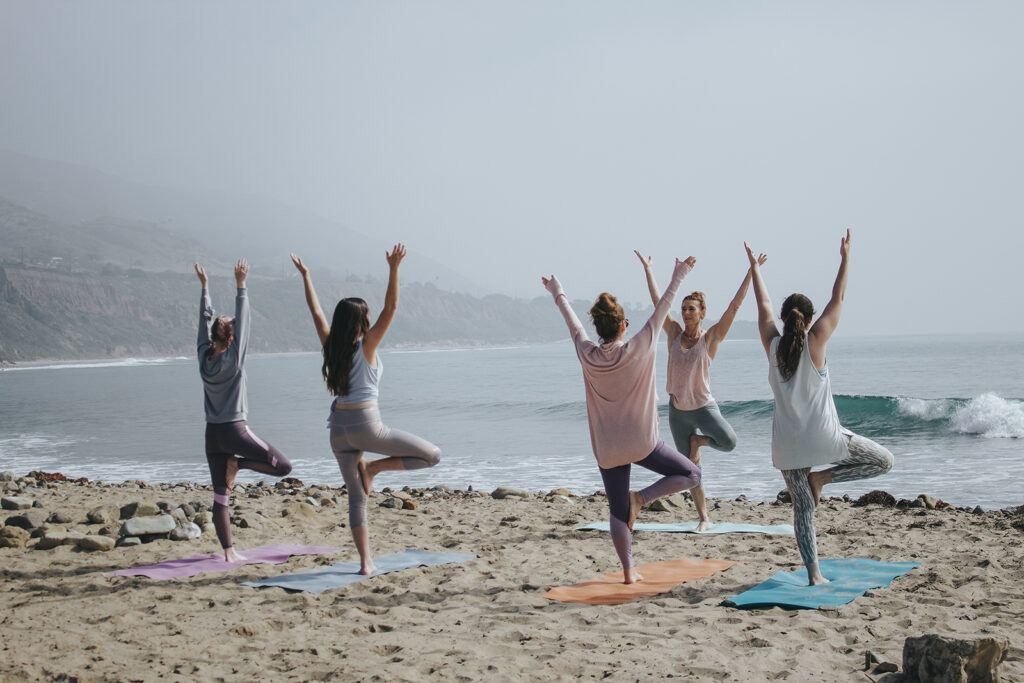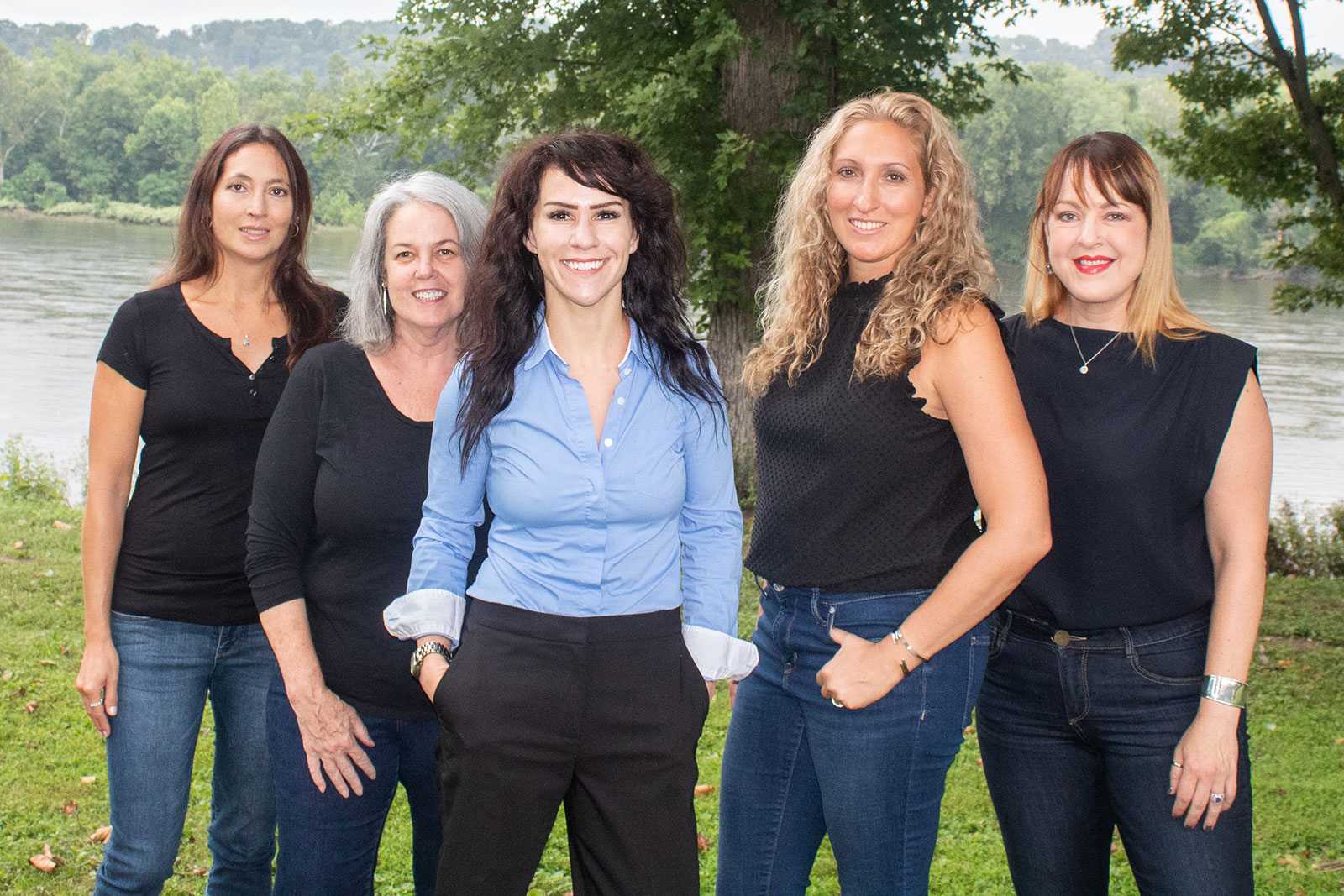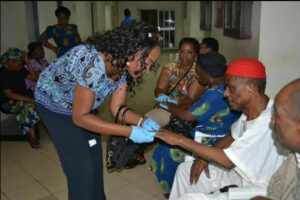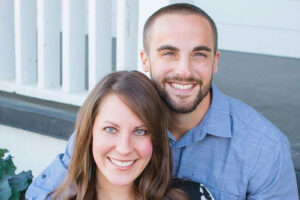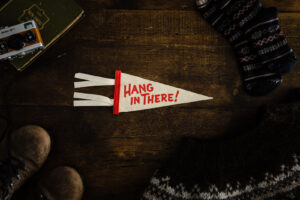It’s well documented that regular exercise can help reduce the risk of cancer, but people going through or recently finished with cancer treatment can also greatly benefit from regular physical activity. About a decade ago, Macmillan Cancer Support, a leading British cancer charity, published the Move More report, which was a review of more than 60 studies of cancer and exercise. One of the biggest takeaways from the report is that approximately 150 minutes of exercise each week could lower a breast cancer patient’s risk of death or recurrence by as much as 40 percent.
The problem, however, is that cancer care teams don’t typically provide resources or guidance about the benefits of exercise post-treatment, even today. In fact, Macmillan polled more than 400 doctors and nurses and found that the majority had limited knowledge about how exercise and physical activity can both prevent cancer recurrence and help manage the long-term physical effects of cancer.
But for cancer survivors, regular exercise can be so much more than a way to help maintain a healthy body. In a group setting, exercise classes can be community-building, acting as a support group for those who have finished cancer treatment and may suddenly feel lost without the daily rigmarole of doctor’s visits, managing treatment symptoms, updating friends and family and everything else that goes along with active treatment.
“Everything goes from 100 miles an hour to ‘What’s next?’” says Ashley Lentz, founder of the 501c3 nonprofit the Aunt Sister Project. “And we really want to be the what’s next.” The Aunt Sister Project provides free or low-cost exercise programs and classes to cancer warriors, thrivers and survivors. Lentz wants the Aunt Sister Project to be the “what’s next” as a way to promote whole body wellness following cancer treatment. “Medical professionals say you should work out and get physical activity, but they don’t necessarily give a direct referral to a program,” Lentz says. “I wish that more doctors would actually prescribe it [as] part of the care continuum.”
This lack of knowledge and resources is something that Lentz directly addresses with the Aunt Sister Project. Each cancer journey is unique, and each survivor has different strengths and weaknesses regarding physical health. Lentz is a certified “cancer exercise specialist,” meaning she’s trained on how to create exercise programs that accommodate the unique needs of this population. To receive this certification, according to Lentz, trainers take courses that explain what can happen to a person mentally and physically from diagnosis to the start of treatment — which can include chemotherapy, radiation and surgery. “It takes you through that timeline and what the side effects of the different modes of treatment would be, and then it helps you develop [proper] exercises,” she says.
There’s a lot to unpack and explore through these training courses, but that’s to be expected. Cancer exercise specialists know how to adjust exercise classes “on the spot” to accommodate any symptoms a client might be experiencing that day. “Symptoms pop up on a daily basis, and they’re not really predictable,” Lentz says. The Aunt Sister Project offers classes catered to a wide variety of abilities — from low impact to high intensity, there’s something for everyone.
While having an instructor who is understanding and accommodating of an incredibly wide range of symptoms related to cancer and its treatment is both comforting and refreshing, this is not the only reason cancer survivors flock to her classes — Lentz emphasizes that classmates are quick to bond over their shared experience, broadening the scope of the fitness class into a support resource, as well.
This wasn’t something that Lentz expected, but it soon became clear that her fitness classes were more than just that. Before founding and becoming an instructor for the Aunt Sister Project, Lentz led classes for cancer survivors at her local YMCA. After one of these first sessions, she noticed how quickly classmates bonded with each other. She also picked up on this bond when teaching one of her first classes with the Aunt Sister Project.
It was a support group without being a support group. There were relationships that were built, lifelong friendships.Everybody had a different story, but they all had that one thing in common that really connected them.
This connection is something that helps Lentz’s clients stay on track with their fitness goals, while providing a community to lean on during the good times and the bad. “It’s really heartwarming to see how supportive they are for each other, [and how] they celebrate getting better and the progress they’re making,” Lentz says.
This is one of the reasons Lentz has made a career out of helping cancer survivors remain active. She was also inspired by how this group seemed to be more dedicated than any she had worked with before. “I really fell in love with working with this part of the population,” Lentz says. “They worked harder; they showed up every single time. … Seeing how quickly and drastically they can make changes mentally and physically [was] like nothing I’d ever seen before.”
Lentz hasn’t had cancer herself, but, like most Americans, she has been affected by cancer. In 2012, when Lentz was first taking steps to become certified in this specialty, her aunt, Sister Helene Lentz, was diagnosed with ovarian cancer. Four months later, she was gone. “We lost her very quickly,” Lentz says. “A week later I started working with [my first] group of survivors.” It was purely coincidental that Lentz would lose someone to cancer while becoming certified, but this experience is what would inspire her to create the Aunt Sister Project.
In Lentz’s words, her aunt was a “very charitable woman,” founding multiple nonprofit organizations during the 50 years she was active in the church. “She’s the epitome of a humanitarian,” Lentz remembers, and that’s why the Aunt Sister Project exists, named in her honor. Lentz wants to make post-cancer exercise options available to everyone — regardless of their location or financial situation. As of right now, all classes are provided in a virtual format. “Even without COVID, I know a lot of people are hesitant to go into a gym,” says Lentz, citing the potential for cancer treatment to weaken immune systems. She says that the Aunt Sister Project will always provide virtual classes, but hopes to add a brick-and-mortar location. “I’d love to have facilities just for people with a cancer diagnosis, so they know when they walk in the door, there are specialists there that will help them the way they need to be helped,” Lentz says.
Most of the Aunt Sister Project’s classes are just $5 each, which covers the cost of the instructors, but Lentz recognizes this fee may be exclusionary to some. “We can provide scholarships, so that if cost is the issue, talk to me and we’ll give you a scholarship,” Lentz says. The Aunt Sister Project fundraises through donors and events hosted throughout the year to offer these scholarships. “Nobody gets turned away regardless of ability to pay,” she says.
This January, the Aunt Sister Project is hosting free classes all month long, so anyone can attend a class with zero commitment. “I think a lot of people are hesitant to try virtual training because it’s the opposite of what you’ve ever thought exercise could be,” Lentz says. She compares virtual classes with the in-person classes she used to teach, explaining that the student experience is much the same. “Once we get people into the program, I’ve seen that the relationships [between students] are just as strong, the changes that I see mentally and physically are just as good. Once they’re in, [they’re] devoted and they work hard.” But, most importantly of all, Lentz knows this to be true: “We have a good time.”
